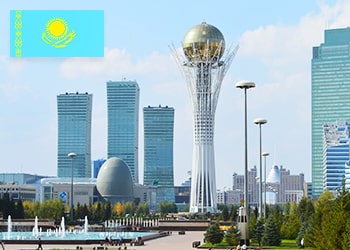Changes to the IP related legislation in Kazakhstan

On July 3, 2018, the Kazakh government introduced amendments to the Civil Code, Tax Code, Patent Law, Trademark Law and some other laws by virtue of the Law on Amending and Complementing Certain Legislative Acts of the
While the changes in the legal procedures related to patents, utility models and designs are minor, the amendments introduced to the trademark registration process are more noteworthy.
First of all, the data on trademark applications are now to be published in the official bulletin within five business days upon completing the formal examination. Previously, trademarks became available for public inspection only after the registration.
Besides, the two-level trademark registration system, involving the Ministry of Justice and the National Institute of Intellectual Property of
Eliminating the two-level system resulted in the reduction of the term for conducting the substantive trademark examination from 9 to 7 months and the formal examination from one month to 10 business days.
Alongside a possibility of using a trademark in a modified form, i.e. in a different font, colour or shape, two new grounds for trademark invalidation have been introduced:
- trademark registration is made in the name of the representative of the owner of the identical or similar trademark registered under the Paris Convention without the consent of the latter,
- trademark is identical or confusingly similar to the goods and/or services offered under the another person’s trade name, an exclusive right to which emerged in the
The court now considers the requests for non-use cancellation of a trademark instead of the Appeal Board. Concurrently, a trademark should be proved to be not used within three years before filing an objection, while previously this term could have also been counted from the date of the trademark registration.
The Law also stipulates the date of the emergence of the exclusive right from the date of a trademark registration. The revised Law also introduces the concept of counterfeit goods, specifies the requirements to the letter of consent, and codifies a right to monetary compensation from an infringer.
Through modification of norms and elimination of legal deficiencies, the Kazakh government endeavours to make the IP legislation more up-to-date, applicant friendly and burden free.